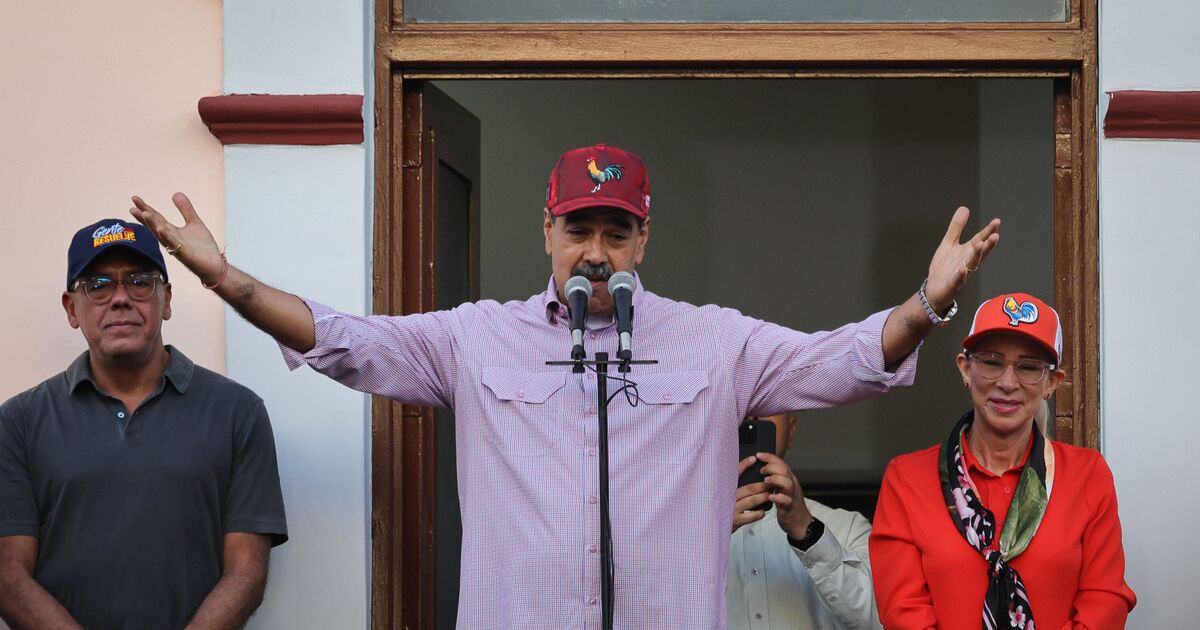Attorney General Pam Bondi announced a public reward of $50 million for information that leads to the arrest of de facto Venezuelan president Nicolás Maduro.
Bondi accused Maduro of collaborating with terrorist groups Tren de Aragua and the Sinaloa Cartel. Previously, the U.S. had offered a $25 million reward for information on Maduro. The Daily Express has contacted the Justice Department and Venezuelan Ministry of People’s Power of Foreign Affairs for additional information.
In a video posted to X, the attorney general claimed the U.S. enforcement agencies had seized 30 tons of cocaine linked to Maduro, as well as assets worth $700 million, including two private jets and nine vehicles. She also referenced the notion that cocaine is often laced with fentanyl, which she said has resulted in the loss of “countless American lives.”
The International Criminal Court is investigating alleged crimes against humanity committed by Venezuelan security forces under Maduro’s rule in 2017 during a crackdown on anti-government protests, though it has not yet sought any arrests.
“The ICC decision today is a beacon of hope for the victims of systematic human rights violations by the Maduro government,” it said in a March 2024 statement. “The decision confirms what these victims already know, with no meaningful justice in Venezuela, the ICC provides an essential path to accountability”.
The court’s chief prosecutor, Karim Khan, announced in late 2021 that he was opening an investigation after a lengthy preliminary probe and an official referral — a request to investigate — in 2018 by Argentina, Canada, Colombia, Chile, Paraguay and Peru.
However, the full-scale investigation was put on hold when Venezuelan authorities said they wanted to take over the case, according to The Associated Press. The ICC is a court of last resort that only takes on cases when national authorities are unwilling or unable to investigate, a system known as complementarity.
Khan pressed ahead with efforts to continue his investigation — the court’s first in Latin America. He said last year that Venezuelan efforts toward delivering justice “remain either insufficient in scope or have not yet had any concrete impact on potentially relevant proceedings.”
ICC judges agreed with Khan and last year authorized him to resume investigations in Venezuela. The judges noted at the time that “Venezuela appears to have taken limited investigative steps and that, in many cases, there appear to be periods of unexplained investigative inactivity.”
Venezuela’s government said in a statement it is neither “necessary nor appropriate” for the court’s prosecutors to carry out separate or additional investigations and insisted that the alleged crimes against humanity “never occurred.”
Appeals judges at the ICC on Friday ordered Khan to recuse himself from an investigation into Venezuela, citing a conflict of interest.
Khan’s sister-in-law, international criminal lawyer Venkateswari Alagendra, has been part of a team representing the government of Maduro and the five-judge appeals panel at the ICC says her involvement creates an issue of “bias” for the prosecutor.

